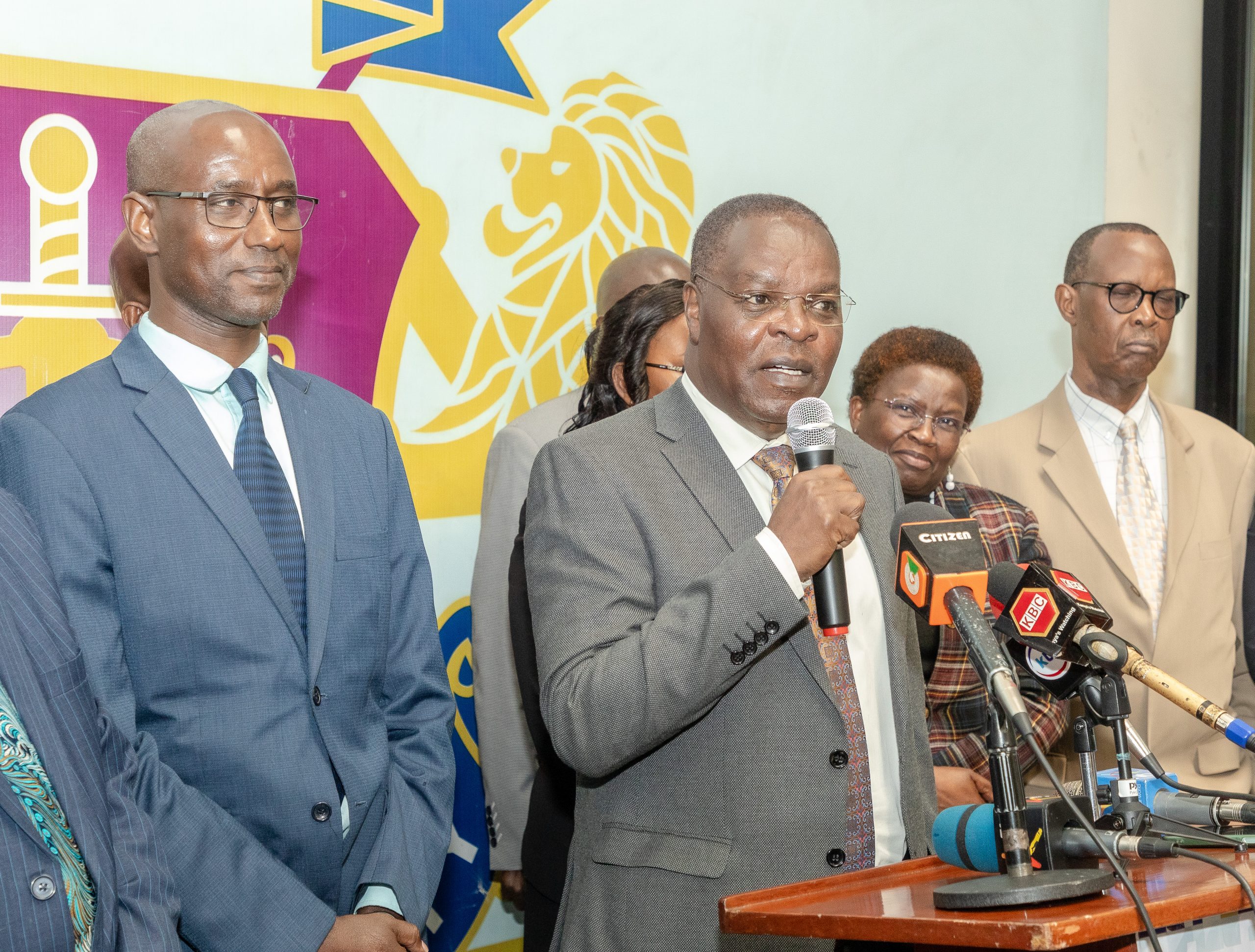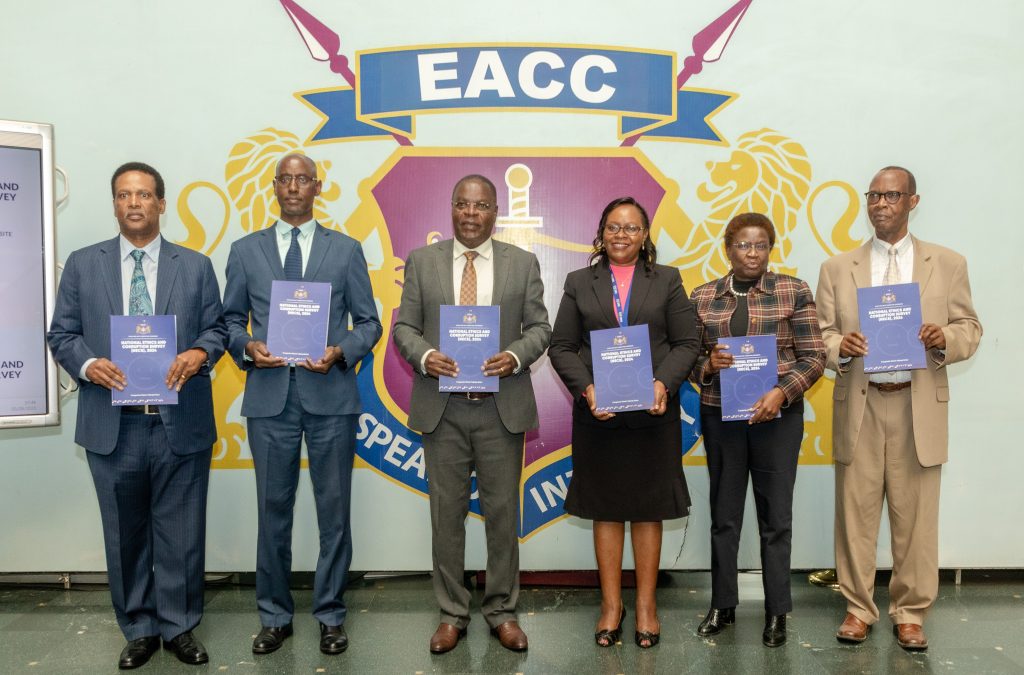Treat findings of 2024 NECS as a call to implement preventive measures, EACC to accounting officers

8:08:2025: The Commission has released the 2024 edition of the National Ethics and Corruption Survey (NECS), providing a comprehensive analysis of corruption and unethical practices in the country.
Conducted across all 47 counties between November and December 2024, the survey engaged 5,960 adults, capturing both their actual experiences and perceptions of corruption in public institutions and service delivery.
According to the Report, which was launched on Tuesday at the Integrity Centre, bribery remains the most common form of unethical behaviour in Kenya.
Over half of the respondents (52.1%) reported witnessing bribery in public offices, while 30.5% admitted encountering bribery situations. Other unethical practices cited include favoritism, abuse of office, tribalism, nepotism, and embezzlement of public funds.

Unemployment, corruption, poverty, and high cost of living were identified as the most pressing national issues, with unemployment topping the list at 49.1%. Institutions such as the Teachers Service Commission (TSC), the Ministry of Labour and Social Protection, and the Kenya Wildlife Service were found to have high instances of bribery. At the county level, Kwale, Kilifi, and Wajir were among the most bribery-prone areas.
Alarmingly, the prevalence of bribery reached 100% in counties such as Elgeyo-Marakwet, Marsabit, and Wajir among those who sought services. The average bribe in 2024 rose to Kes4, 878 from Kes3, 694 in 2023. The highest bribes were linked to employment in the county executive (Kes243, 651), national tenders (Kes100, 000), and TSC placements (Kes72, 665).
Despite these statistics, 97.2% of bribery incidents went unreported due to fear of retaliation and lack of confidence in the reporting systems. The employment sector in county governments accounted for the largest share of national bribe amounts, with Uasin Gishu, Baringo, and Embu counties contributing significantly.
Launching the Report, Chairperson Dr. David Oginde noted that the Commission is already undertaking interventions in some of the ministries and departments adversely mentioned, including systems reviews and corruption risk assessments aimed at identifying loopholes and recommending corrective measures.
Representing the CEO, FCPA John Lolkoloi, Director, Ethics and Leadership, emphasized the urgency of addressing corruption. He urged accounting officers to treat the findings as a call to implement preventive measures in their institutions.

